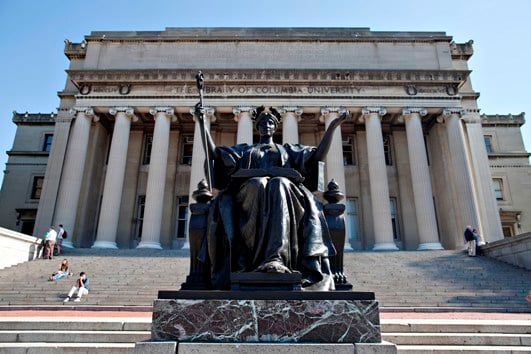Paying someone to take the SAT test on your behalf -- as six Long Island students were recently charged with doing -- is illegal. If convicted, the students could face jail time for their offense. That's justice, however sad.
The episode points up the absurdities that have grown up like ivy around the long revered -- and increasingly criticized -- SAT. Many parents spend vast amounts of money, from SAT prep courses to private tutoring, for a test that, according to some college officials, isn't that predictive of how well students will perform in college. You might ask yourself, 'Isn't that the point of the SAT'? But shaky justification has done nothing to slow the flow of money into everything and anything related to the test.
Gaming The System
The alleged cheating scandal is "part and parcel of the test score arms race out there now," says Robert Schaeffer, public education director at FairTest, a nonprofit that monitors the testing industry. "Kids believe they need to raise scores by any means possible." Says Elizabeth Wissner-Gross, an international educational strategist hired to help students prepare for college: “People are desperate to get their kids into certain colleges.”
In the get-into-college game, desperation quickly converts into cash. The smallest alleged payment to the test taker, $1,500, wouldn't cover one of the most basic SAT prep courses. The small-group SAT review course given by the Princeton Review consists of 24 hours of instruction and costs $1,600. The company's priciest one-on-one tutoring package in New York costs $8,400, and some professional tutors charge up to $800 an hour.
RELATED ITEM: The 10 most-expensive state schools
If students such as the alleged cheaters are cynical about college admissions, it's because “students understand it's a system they can game,” says Wake Forest University Professor Joseph Soares. A critic of universities' reliance on test scores, Soares is the editor of the book “SAT Wars: The Case for Test-Optional College Admissions,” released Sept. 30.
Investments in test prep can pay off, to a point. According to FairTest, it boosts SAT scores an average of 100 to 120 points. Yet if the point of using the SAT is to determine how well a student will do in college, they're not that valuable, say critics. A study in Soares' book shows that a 200-point difference in SAT scores makes virtually no difference in the grades college students get. High school grades, meanwhile, provide valuable information on how likely a student is to get good grades and complete a bachelor's degree, he says.
Kathleen Steinberg, spokesperson for the College Board, which administers the SAT, strongly disagrees. She says research, including a 2008 College Board study, shows that standardized test scores do help predict success in the first year of college. As well, “the SAT helps admission officers put high school grades in perspective,” she says.
Colleges are casting their own vote and increasingly it's thumbs down. The number of accredited colleges that don't require all or most applicants to submit SAT or ACT scores has grown to about a third, according to FairTest. That includes prominent New England liberal arts schools such as Smith College, Bowdoin College, and Bates College, as well as Wake Forest University.
The College Board cites its own statistics. Steinberg says that of the 1,500 most selective four-year not-for-profit colleges in the U.S. about 5% do not require standardized test scores "for the main body of students." Many test-optional schools still receive test scores from most applicants, she adds, and use them in admissions decisions.
Better markers
DePaul University, a 25,000-student school, will convert to a test-optional policy starting with next year's class. Chicago-based DePaul made the decision after four years of comparing incoming student test scores with later academic performance. Other criteria, such as grades in college-preparation courses and involvement in extracurricular activities, were much better markers of future success, says Father Dennis Holtschneider, the university's president. Only some students can afford test prep courses and take tests multiple times, he says. “We're trying to level the playing field a little bit by using something that's a much better predictor.”
Standardized test scores are also losing importance at Fairfield University. Starting with 2010's incoming class, it made test scores optional. For years before that, "test scores were becoming less and less a factor for us," says director of undergraduate admission Karen Pellegrino. "The hardest thing is making students believe that we're really not looking at them."
Where the SAT's value soars is when it is used to get money. Standardized test scores remain very important in getting scholarships, including the National Merit Scholarship. “It is a smart economic decision to purchase [test] coaching for that reason,” says FairTest's Schaeffer. A small increase in scores can make a student eligible for thousands of dollars in extra scholarship money.
RELATED STORY: The 10 priciest private colleges in the U.S.
That means many students are at a disadvantage in getting that money. On the SAT, men score higher than women, whites higher than blacks, and students with upper middle class backgrounds higher than working-class students, according to Soares. Says Schaeffer: "The thing that SATs measure best is socioeconomic status.”
--Bloomberg News--







